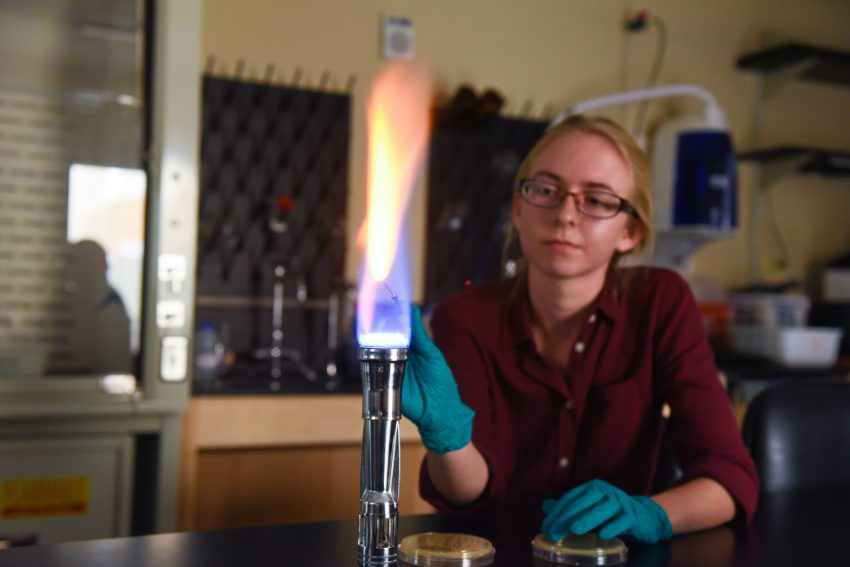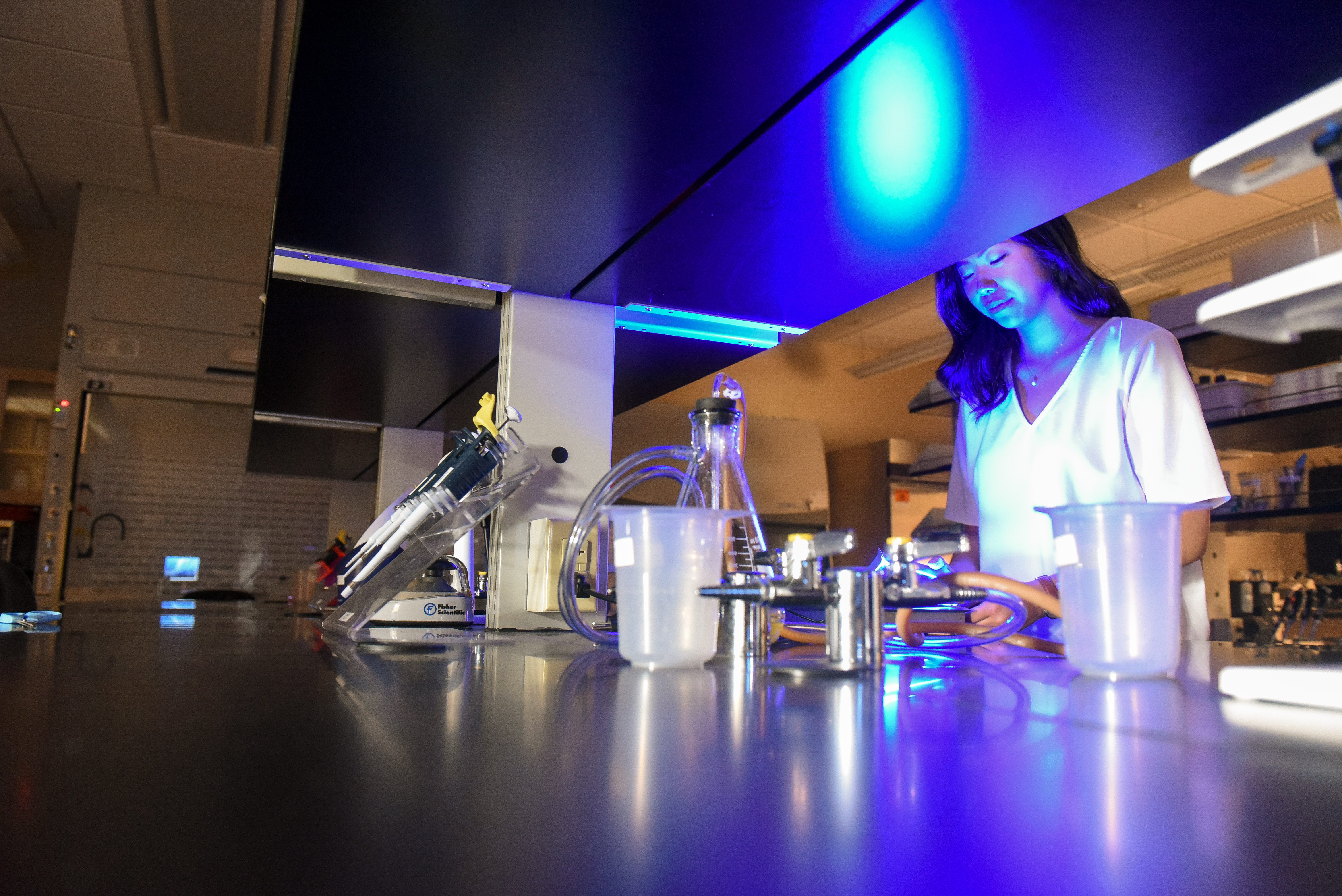Belmont’s Summer Scholars program, now it its 15th year, provides the opportunity for faculty to mentor groups of students throughout the summer as they conduct important research. Since it began, more than 60 research communities have formed among more than 200 students in English, mathematics, computer science, biology, history, psychology and sociology. This summer, 18 students and 4 faculty are participating in the programming.
This summer, a number of projects are underway. These include:
- A group of undergraduate researchers who are modeling Parkinson’s disease and treating the Parkinson’s-like worms (C elegans) with novel reagents to determine their effectiveness for relieving symptoms, led by Professor of Biology Dr. Nick Ragsdale. The group hopes their work may inform new therapies.
- Students who are growing cells that have been isolated from cancerous tumors to test potential treatments with the hopes of uncovering new chemotherapeutic agents. This team is led by Assistant Professor of Biology Dr. Chris Barton.
- Biology Department Chair and Associate Professor Dr. John Niedzwiecki’s team, a group of students who are characterizing predator-prey responses in local snail populations to explore differences in response of snail size, as well as native vs. non-native predators. This work seeks to understand stream health, an important ecological endeavor.
- A final group of students who are working alongside Professor of Biology Dr. Lori McGrew and measuring the effects of treatments on anxiety levels in zebrafish. These studies will add to a growing body of knowledge about zebrafish which will increase their usefulness for modeling human disorders.

The importance of undergraduate research opportunities are immense for student success. “Evidence suggests that undergraduate research facilitates student learning both by increasing student interest/motivation, and fostering critical thinking skills through the application of the scientific method,” McGrew said. “Summer Scholars also develop a sense of community. While their projects differ, the shared experience of conducting research that they planned with all its successes and failures, creates a strong bond among the student participants.”
This fall, participants will present their findings on campus during the Science Undergraduate Research Symposium and off-campus at regional or national meetings.



